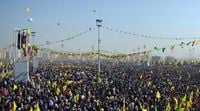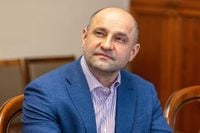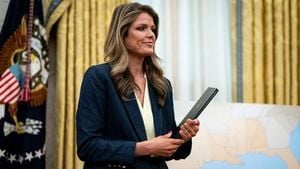Turkey's President Recep Tayyip Erdogan announced a significant initiative during a recent speech in Istanbul, stating his readiness to submit a proposal to parliament to recognize Navruz, the spring equinox festival, as a state holiday. This declaration comes at a time when efforts to address the longstanding Kurdish issue in Turkey are gaining momentum.
"On behalf of my country and people, I express my love to all our compatriots celebrating Navruz in all corners of the Turkish world," Erdogan said, highlighting the cultural importance of this festival that is celebrated by various ethnic groups, including Kurds, Uzbeks, and Tajiks. By pushing for the formal recognition of Navruz, which translates from Farsi as "new day," Erdogan appears to be fostering unity among Turkey's diverse communities.
The proposal is particularly significant for the Kurdish population, who regard Navruz as an essential cultural celebration, especially in southeastern Turkey, where festivities are vibrant and widespread. Local observers have noted that Erdogan's initiative seems aimed at addressing the sentiments of the Kurdish community, who have long felt marginalized. In an effort to resolve tensions, the Turkish government has been actively seeking dialogues with the Kurdish leadership.
In recent weeks, Ankara has ramped up efforts to engage with the Kurdistan Workers' Party (PKK), a group that has been involved in a decades-long conflict with the Turkish state. Abdullah Ocalan, the imprisoned leader of the PKK, called on the group in February to disarm and dissolve itself, signaling a potential shift towards peace negotiations.
The celebration of Navruz has ancient Iranian roots and symbolizes the arrival of spring, along with a season of hope for bountiful harvests. For many in Central Asia and beyond, Navruz represents not only a change in seasons but also a time for family reunions and the strengthening of community ties.
In 2009, UNESCO recognized Navruz as part of the intangible cultural heritage of humanity, and two years later, the United Nations General Assembly designated March 21 as International Navruz Day. Such recognition by international bodies underscores the festival's significance across nations.
As Erdogan prepares to bring this proposal to parliament, it remains to be seen how lawmakers will respond, particularly against the backdrop of ongoing discussions about Kurdish rights and recognition. By embracing Navruz as a state holiday, Turkey could take a crucial step toward fostering inclusivity in a nation marked by its ethnic diversity.
In conclusion, as the Arab Spring and other socio-political movements have shown, managing cultural and ethnic identities is paramount for peaceful coexistence in a multi-ethnic society like Turkey. Making Navruz a public holiday could further this aim, offering an opportunity for celebration and solidarity among all groups living within the country.





